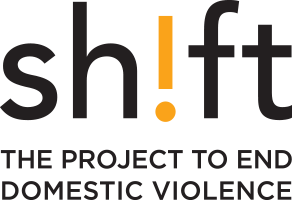It’s been an exciting week for Shift’s Director, Lana Wells, who delivered the opening keynote presentation for the sixth annual Canadian Domestic Violence Conference (CDVC6) held in Halifax on March 5 and 6. The conference was prefaced by two days of strategic discussions for Standing Together — Nova Scotia’s action plan to prevent domestic violence, which Wells joined as an expert international panel member.
Wells opened CDVC6 with her keynote presentation on engaging and mobilizing men in violence prevention. She shared lessons from over a decade of research on this topic and encouraged the audience to critically and inwardly examine the problem of gender-based violence. “Patriarchy, racism, homophobia, white privilege don’t simply exist in external structures and systems,” said Wells, “they also lurk within each one of us. So the challenge is also an internal one.”
In 2020 we have a solid understanding of ‘why’ we need to include and mobilize men in gender equality work, but we are stuck on the ‘how’, Wells told the audience.
“We won’t understand how to move the needle on this issue unless we have a better appreciation of the problem itself,” she explained. “What’s driving it, what sustains it, what keeps us from moving closer to the goal of a just, equitable, violence-free world.”
These are the questions the Shift Project begins with when examining gender inequality and violence, she explained, and any effort to prevent domestic violence should include a feminist, intersectional, and gender transformative approach.
Wells went on to identify four current barriers to engaging and mobilizing men and shared with the audience some potential solutions such as, investing in non-programmatic approaches, leveraging key-influencers within places that men and boys naturally congregate, focusing our efforts on changing our violent and sexist ‘culture’, and finding ways to support men who are engaged in this work across Canada.
Of course, said Wells, delivering on these promising approaches requires a commitment from funders and policy makers to change how they are currently funding gender-based violence prevention efforts. She also recommends that practitioners move beyond programs.
Prior to the conference, the Government of Nova Scotia, hosted a series of consultations to discuss specific strategies as part of the Standing Together action plan with government and community members. Wells was also a member on two expert panels where she shared her perspective and expertise on Systematic Shifts to Disrupt Intimate Partner Violence, and A Restorative Approach to Culture Change.
You can download her keynote speech and PowerPoint presentation: Poking the Bear: Lessons on Engaging and Mobilizing Men in Violence Prevention.
You can watch her keynote: Poking the Bear: Lessons on Engaging and Mobilizing Men in Violence Prevention.


